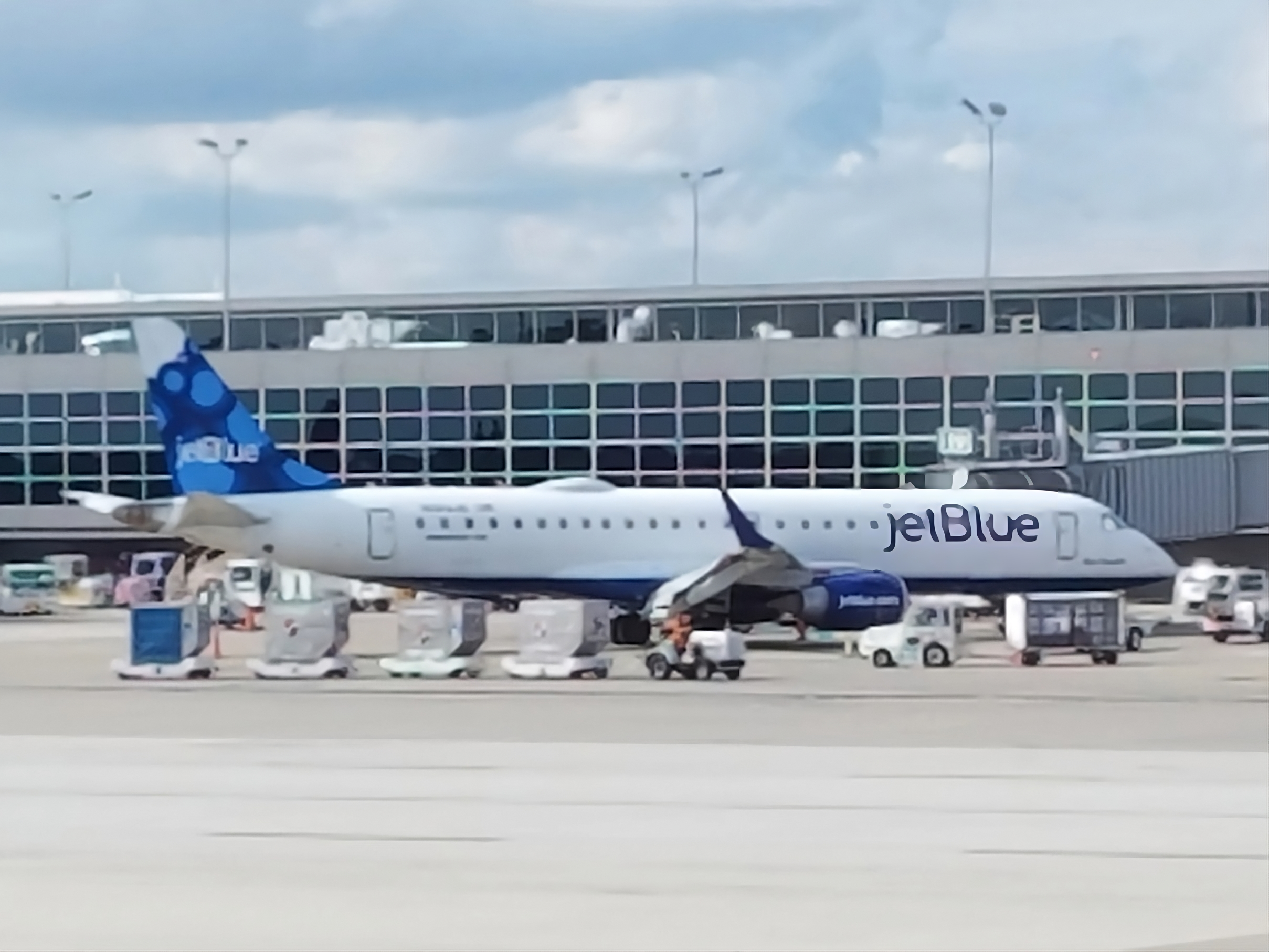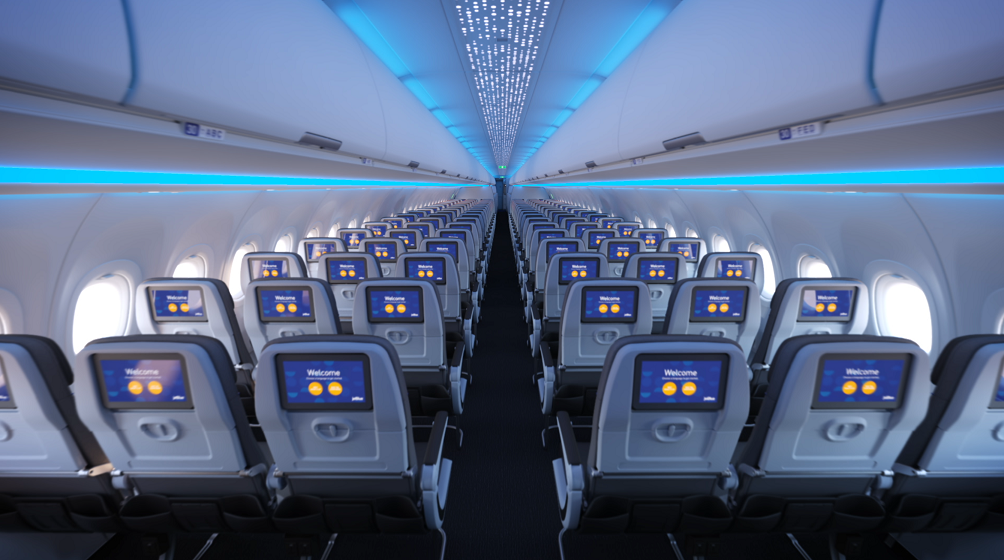Ten years ago, lagging financial performance forced out Dave Barger from the helm at JetBlue. The airline began to ape the tactics of legacy airlines. JetBlue went from being ‘much better’ as a standard coach experience to equal or maybe only marginally better, squeezing legroom and slowing inflight investment while adding on fees.
That didn’t help JetBlue! The airline industry is tough. Following the lead of incumbent carriers with government-sponsored benefits like slots in congested airports, anti-trust immunity as part of global alliances, and access to international airports through federal muscle isn’t a winning formula. (JetBlue itself, of course, was created by Chuck Schumer’s gift of slots at New York JFK.)
Airlines are low value businesses to the market. Following the model that gets you a valuation of 6x earnings is never going to mean outperforming the industry. And for a smaller player, with less flying to amortize fixed costs across and less of an ability to sell corporate contracts or meet a customer’s flying needs broadly (and therefore gain scale of frequent flyer program and sell co-brand credit cards) it’s impossible. JetBlue needs to distinguish itself.

Recently it has not done so, and it’s suffered for it, including the loss of another CEO. They’re beginning to reverse some of their mistakes, however. And in a way that’s surprising – because the safe thing to do when lagging the industry is to follow it. Executives usually risk their jobs doing anything else.
One such mistake JetBlue made was with basic economy. In 2021 JetBlue followed United’s lead and banned basic economy passengers from bringing full-sized carry on bags on board. That policy ends September 6. Here’s JetBlue President Marty St. George:
Carry-on bags are an important part of travel to customers, and when presented with a choice between JetBlue’s award-winning service and another carrier’s basic offering, we want JetBlue to be the easy winner. We’re always looking for ways to evolve our offering in response to customer preferences. This is a win-win as we improve the customer experience and keep JetBlue competitive in our industry.
As flying becomes cheaper and more accessible for a spectrum of customers, a one-size-fits-all offering no longer works. Whether a customer prefers more included benefits, or they shop solely on price, our fare options coupled with our great onboard service, makes JetBlue the best choice. No matter what fare a customer prefers, we provide clear and transparent information on what that selection includes.

American Airlines tried to ban carry-on bags from basic economy, and reversed that strategy. Scott Kirby had developed that as part of basic economy when he was President at American, and brought the idea to United. Among major airlines, only United has this restriction.
- American views basic economy fares as an introduction to its product, not as a punishment and a way to offer truly separate products.
- United sees it as a way of offering one product that competes with Spirit and Frontier and another that competes with Delta.
Basic economy matters as a way to differentiate corporate travelers (who generally pay more) from leisure customers (who are price sensitive). The old methods of Saturday night stay and 14-day advance purchase no longer hold.
But customers aren’t as stupid as airlines assume, or maybe even used to be. They compare the offerings of airlines – at the same price, nearly everyone offered better value than JetBlue. Certainly Delta – which has free wifi, too – offered better value in both New York and Boston than JetBlue’s basic fares. That hurts JetBlue, which wins only when customers go out of their way to choose them over competitors.
When United Airlines introduced its harsh basic economy before American did, they lost nearly $100 million on the effort. They now say it is doing well. It clearly wasn’t for JetBlue.
Even Spirit and Frontier have been revamping their product offerings, with product bundles more like a legacy airline (Frontier) and eliminating all change fees (Spirit). Will United Airlines be able to hold out offering less value every time for passengers flying the cheapest tickets?


Amazing that United is still sticking with it.
Assuming the Blue Basic fare retains the last boarding group attribute, it’s more appropriate to say they’ll be gate checking carry-ons for free now. I would have preferred they kept free seat selection at check-in time instead, although I’ve gotten assigned to an empty row and a first row seat on my last two flights.
This is the right move, B6.
B6, when on time, is still the best experience hands down as compared to the Big 4.
Yes, DAL comes darn close.
Just flew United Basic Economy last week on a full plane as someone who doesn’t have elite status or a United credit card. For some reason they automatically assigned me a window seat before the 24-hr check-in window opened, and then at online check-in I was issued a boarding pass even without a checked bag, and in group 2 boarding, no less. So I was happy to not have to sit in the middle and check-in at the airport to have my carry-on bag sized. Not sure if it’s a fluke, or if United is quietly (and unofficially) changing their policy due to competition…
Unfortunately for me, the non stop JetBlue service between LAX and BUF has been discontinued which will add quite a few hours to my trips. It was discontinued before and then reinstated so I still have hope that will happen again on a route with almost full or full airplanes every time (I am almost sure that they were making money on the flights). JetBlue will probably still be price competitive and still has extra knee room plus has good cabin crews. With the carry on in Blue Basic, adding a seat selection may still be cheaper than the next more expensive seat ticket price but it will be applied four times instead of twice.
@che That’s awesome! My last United BE flight I was assigned an Economy Plus seat which was a pleasant surprise. Still boarding group 6 though. I was willing to sacrifice the Economy Plus window seat for a regular Economy aisle seat but that would’ve cost me $70 which I thought was interesting.
@FlyontheWall: +1
If JetBlue fixes its on-time performance, it will be hard to beat. It’s already my top choice if I don’t have a tight arrival deadline.
I biggest problem with checking bags was that the bag might take 40 minutes or more to come out after the flight. On my last United flights at different airports the bag was already on the carrusel when I walked by baggage claim after deplaning. If it’s that fast.. I don’t mind checking bags.
They can do what they want with us good or bad and we have no say …